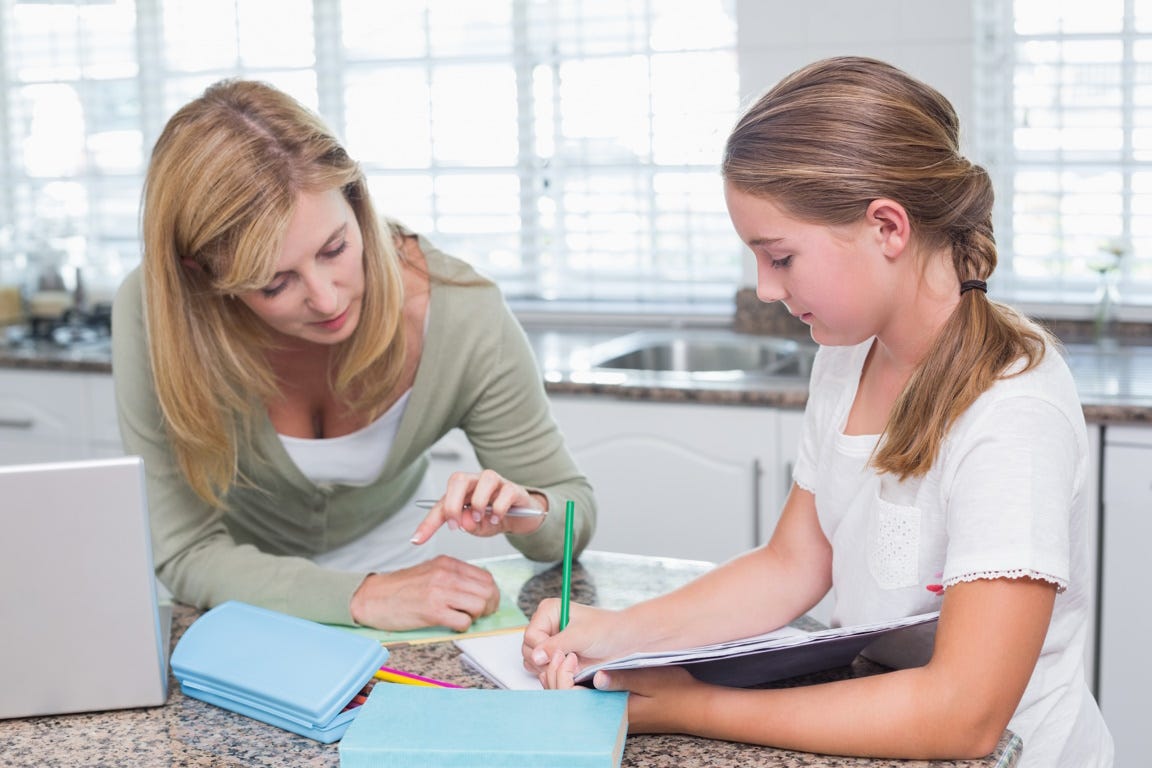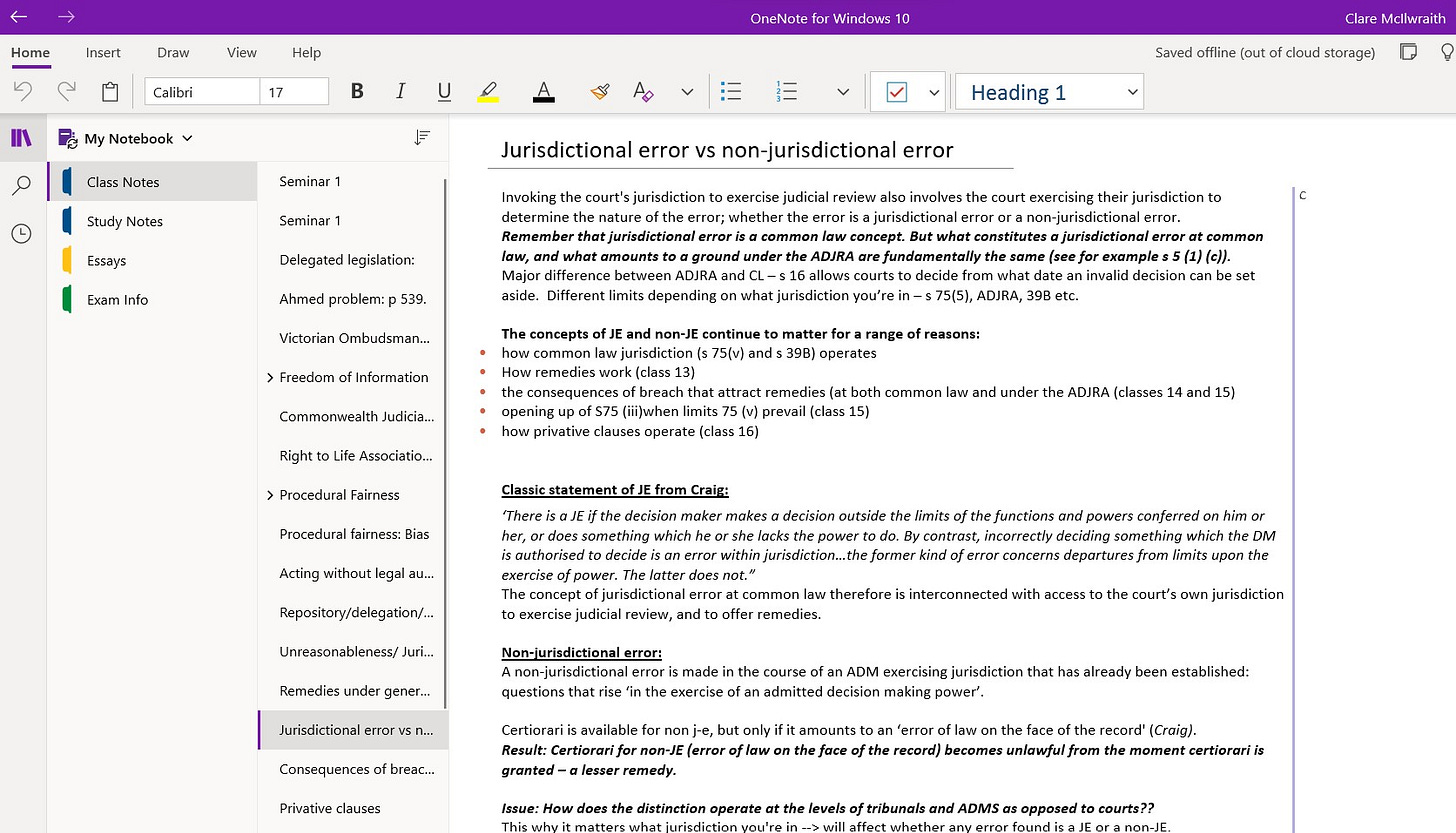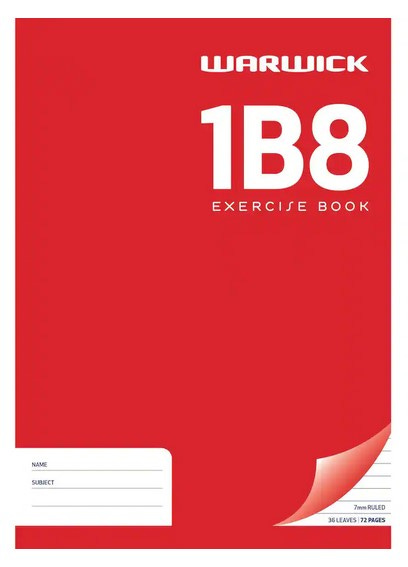Super Simple: 3 Quick Study Things to Help Your Teen This Weekend
Kick-start your teen's study and organisation into gear right now with three very simple and practical study tips.
When teens are struggling to study, it can all feel like a huge battle, for the whole family.
It feels like there is a huge mountain to climb and nobody has the right equipment to make it up and over the other side safely.
This is why I get so frustrated that teens aren’t taught how to study at high school (btw I’m mad at the system — not teachers who are amazing and should be paid much more IMHO!).
They’re loaded up with so much information, which they then have to process and retain, before having to apply what they have learnt for exams, but they’re not given any study tools to do this! Wtf!
The good news is, effective study is not actually complicated. Effective study skills are simple and can be learnt by any teen.
So to that end, I thought it would pick out 3 super simple study skills you can help your teen with this weekend.
These study tips will demystify any confusion they have about where to start, kick-start the Study System they need to develop, and ease the pressure that builds when you’re frustrated and unmotivated.
Quick Thing 1: Sorting out a Study Notes system
Remember when back in the analogue days you’d sit down to study or do an admin task but have to sort through a huge mess of random bits of paper before you could even start? So demoralising.
Well lots of teen still have this problem in the digital age.
Just because your teen uses a laptop all the time for school doesn’t mean their school stuff is organised.
If your teen’s digital and/or phsyical study space is a dog’s breakfast, I strongly suggest you help them get a system in place to keep all of their school work and study resources organised.
When I was at high school pretty much everything was analogue, but by the time I went to Law School Steve Jobs had taken over the world and most of the class took notes on a Macbook. I was and still am a PC user, and used OneNote for my study notes.
Before you die of boredom looking at the image below, I just want to point out the left hand navigation panels — super simple and easy for keeping track of all the different types of notes.
I highly recommend that if they don’t already, your teen installs a programme like OneNote or Evernote (good for both Mac and PC users) to take notes in class and keep all of their notes (including study notes) organised.
This will allow them to find the information they need quickly and easily, which is a big part of studying effectively and fueling focus and motivation.
There is nothing more de-motivating than sitting down to study but not being able to because you don’t know where anything is. The pits.
For the odd bits of physical paper your teen gets from school, and for any handwritten study notes they make (which I strongly suggest they do), my tip is simple — keep all of their notes for each subject in one exercise book.
Having one notebook for each subject will help your teen keep all of their documents and notes for that subject in one place. No more losing bits of paper.
Quick Thing 2: Learning Style
If your teen is feeling stuck when it comes to studying, I suggest you help them figure out what their predominant Learning Style is.
All they need to do is take my quick and free 12-question Learning Styles Quiz.
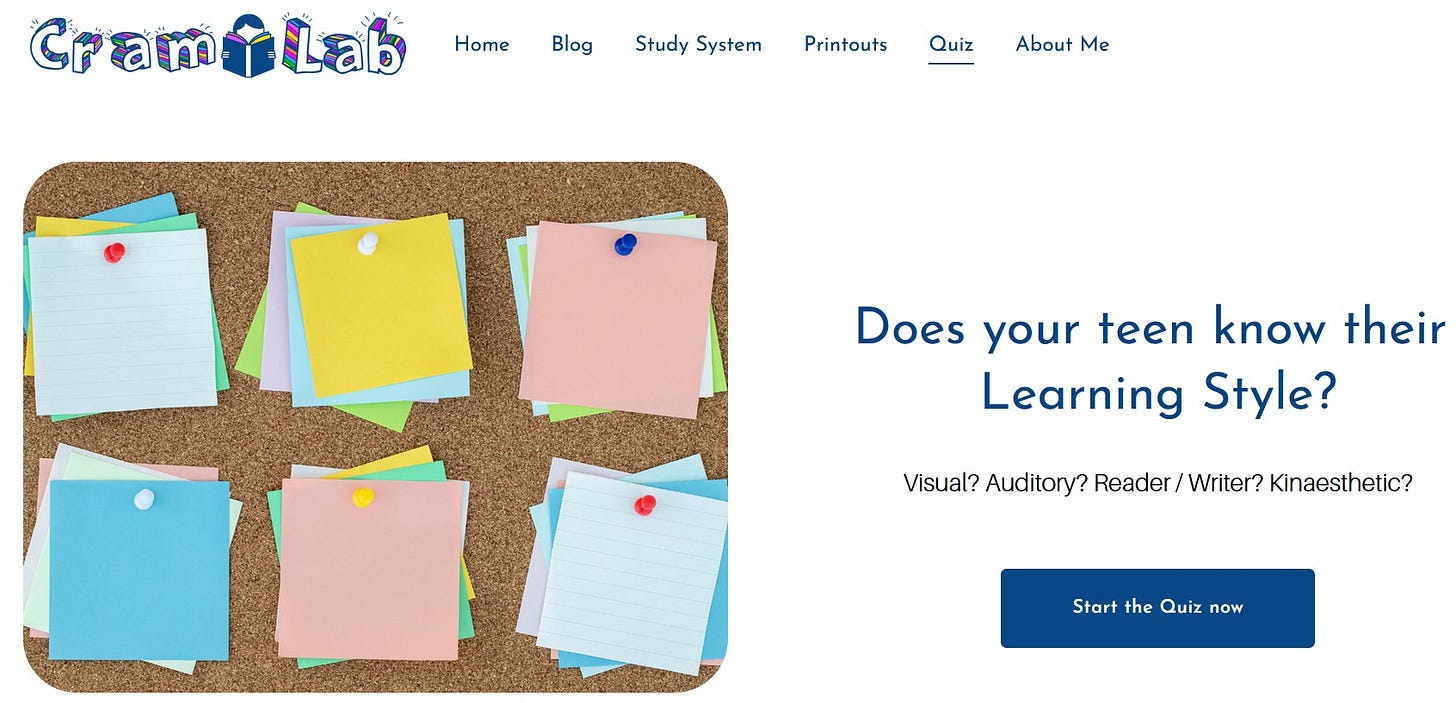
Why is this important?
Having an idea of what their Learning Style is will give your teen a starting point for their study by helping them figure out which study techniques are more likely to work for them.
For instance, if they are a Visual Learner, visual-heavy study technqiues like drawing diagrams and using highlighters in their study notes could be really helpful and I daresay make studying a lot more enjoyable.
Whereas if they are more of a of Kinaesthetic Learner, they will probably benefit from study techniques that involve some kind of movement or physical engagement, like making flash cards or watching videos with demontrations.
A lot of students will have a combination Learning Style, so once your teen has taken the Quiz, you can also have a read with them about all of the tips associated with each Learning Style, as they could very well benefit from more than one.
I am a Visual / Reader/Writer learner, and while it definitely helped me to know what my strengths were, I would sometimes take more of a ‘pick and mix’ approach to studying, depending on what I felt like doing.
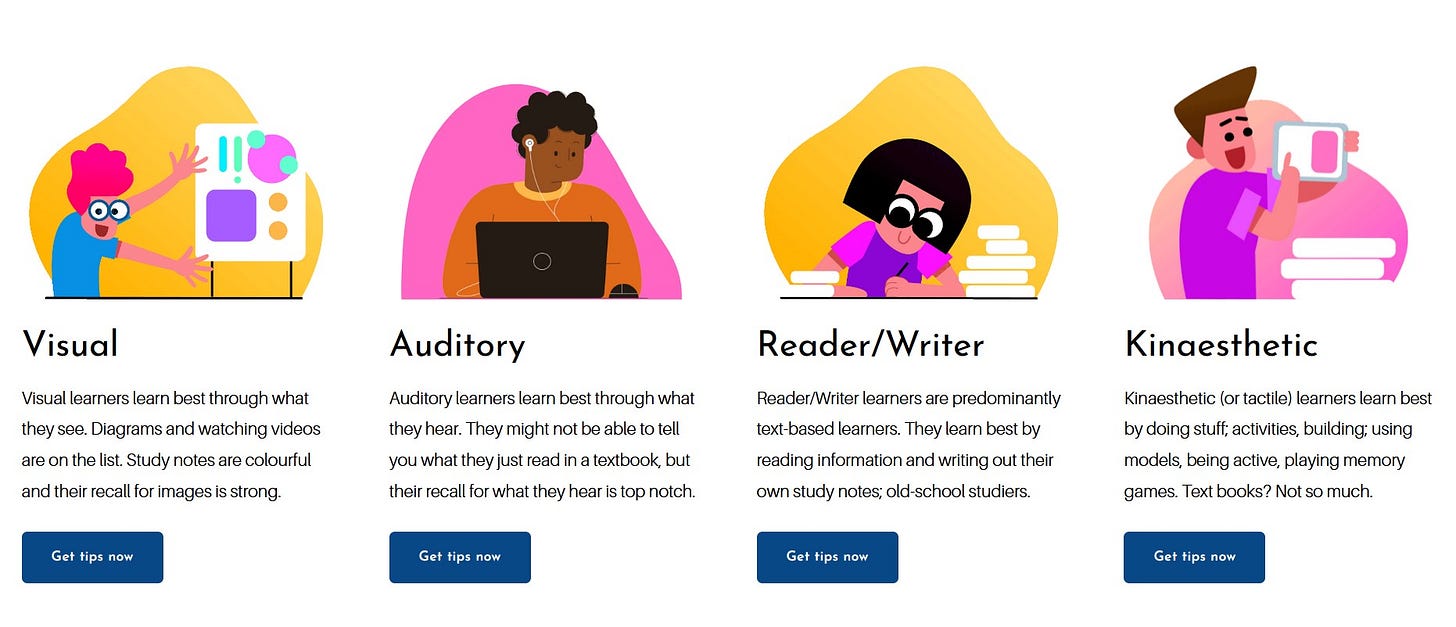
Quick Thing 3: Make a high level plan
The process of studying is infinitely less stressful when you have a plan to stick to.
While exams are not imminent, now is a good time to make a high level plan for how your teen is going to tackle the rest of the school year.
I would think about the following and make a plan accordingly:
When are your teens exams this year? About 6 weeks - 2 months out is when they should be starting their exam study.
Before then, what does their weekly plan look like? Presumably there is a lot shoved into a week — sport, music, drama, family stuff etc, — but can you find an hour here and there to keep on top of what they are learning at school?
Even little bits of study during the term/semester will pay huge dividends when it comes to exam time, because your teen will already have an idea of the content they need to know, and won’t just be starting to learn the content.
(For my thoughts on how much studying your teen should be doing during the week and during exams here is a previous article with all the details.)
What type of incentives are in place to help them stay focused and motivated? Some teens benefit from having something to look forward to at the weekend as a reward for putting in the effort during the week. It could be going to a movie, making a dessert of their choosing on Saturday night, or just chilling out and doing nothing for a bit.
Whatever it is, the important thing about incentives is making sure they are based on the effort put in, rather than a result. Your teen cannot fully control what grades they get, but they can control whether or not they stick to their weekly study schedule.
Using these questions as a prompt, the idea is that you and your teen come up with a weekly schedule/timetable to help plan out their time.
This simple planning exercise will help your teen gain some control over their studying this year, help them stay accountable to their study during the week, and because of this — have the massive spinoff benefit of keeping everyone’s stress levels down.
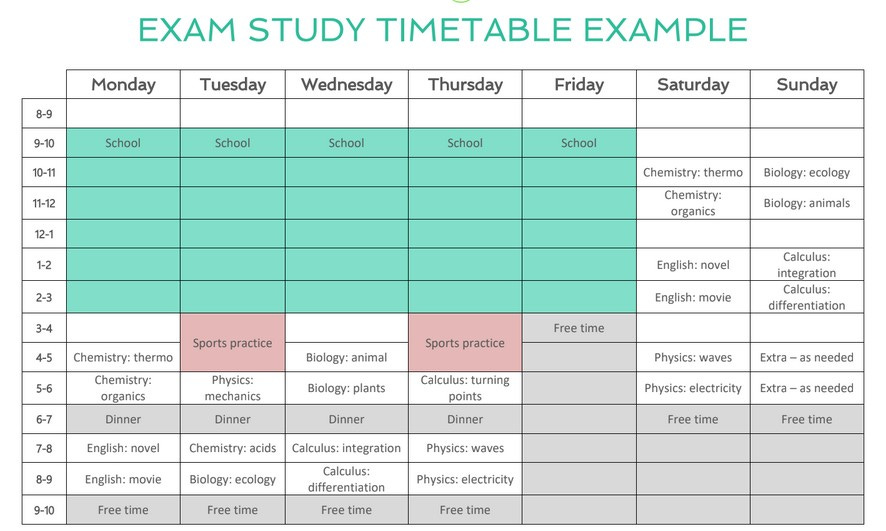
These 3 quick tips are things that absolutely any teen can do, especially with your help.
And just because they are simple does not mean they are not effective — actually the opposite is true.
They are essentially simple techniques for getting started and organised, but they have massive downstream effects that will help your teen stay on track.
Thanks so much for reading. I hope you have a great weekend.
Clare
P.S. How is your teen getting on? How’s school going? What’s the main obstacle holding them back at the moment? Have they figured out their Learning Style? Let’s talk it out in the comments.
Otherwise you can shoot me an email any time with any questions you might have: clare@cramlab.org
P.P.S. Here are some helpful links related to the tips above:
The Learning Styles Quiz (takes you to cramlab.org)
Free templates for your teen to make their own Exam Study Timetable and Subject Maps (not talked about above but relevant to getting organised and ready for exam study, as I explain here)



